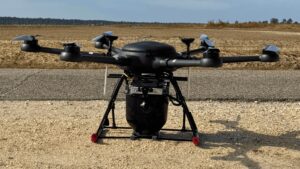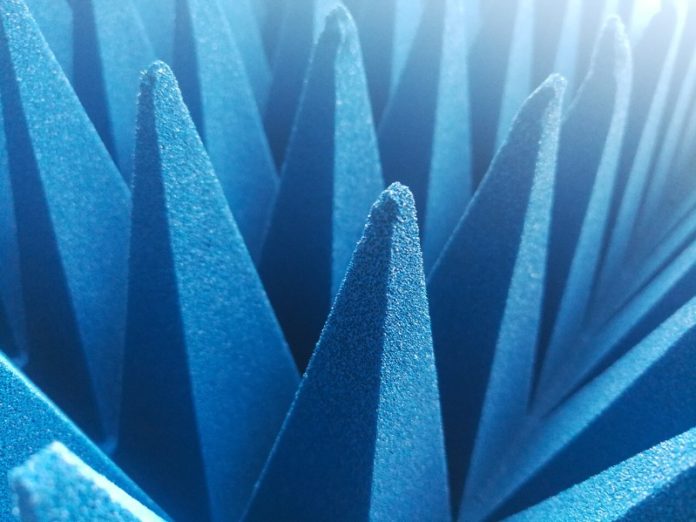New Keysight KAI portfolio focuses on testing needs for scaling AI data centers
Keysight is all-in on supporting the design and testing of AI data centers, with several announcements of new tools this week as part of its Keysight Artificial Intelligence (KAI) portfolio.
That portfolio, the company said, is meant to help in scaling AI processing capacity in data centers, maximize system performance in AI clusters and “pinpoint performance issues not found when testing individual components.”
The KAI portfolio includes a number of tools, including a “data center builder” that combines emulation of large-scale AI data center workloads with “measurable fidelity”; digital design tools for AI chip development; tools for assessing and ensuring AI network performance; and solutions for testing and optimizing power and energy management across AI data center components.

Those features, Keysight said, will enable improved optimization of AI data center operations, allow data center operators to anticipate and head off the impacts of component failures, validate interconnects up to 1.6T and benchmark AI network performance and workload distribution; it also supports AI silicon development, the company added.
Keysight emphasized the portfolio’s ability to provide tools and insights at the system level, not just visibility into issues with individual components.
“Scaling AI data centers requires more than component-level validation. Interoperability, performance, and efficiency are system-wide metrics that can only be measured under real-world network conditions,” said Ram Periakaruppan, Keysight’s VP and GM for Network Test and Security Solutions. “Keysight’s AI solutions integrate our deep experience in traffic emulation, component, and network compliance validation, and the latest industry standards to emulate every aspect of data center performance: compute, network, interconnect, and power to ensure AI infrastructure meets evolving demands.”
In a comment on the portfolio announcement for AI data centers, Alan Weckel, founder and technology analyst at 650 Group, said: “Accelerating design and deployment of next-generation AI/ML ASICs is key to unlocking the market as customers move from foundational training to agentic models. AI interconnect through scale-up, scale-out, and frontend networks will drive record 800GE and 1.6T port shipments over the next several years with one of the fastest innovation cycles to ever occur in the industry.”
In other test news:

–Rohde & Schwarz has integrated the ability to detect, locate and analyze electromagnetic signals into drones from UAV company Milton, for use in military applications to identify signals such as suspicious radio communications, jammers, electromagnetic warfare devices or broadcasts to enemy drones.
Rohde also this week touted updates to its Elektra EMC test software for electromagnetic compatibility testing, saying that the software now supports all of the current EMC standards across the commercial, wireless, military, automotive and aerospace sectors.
-Amid increasing pressure for networks to move to 1.6 Tb speeds to support artificial intelligence and other high-speed networking needs, Viavi Solutions said it has enhanced its ONE-1600 test platform.
“Viavi anticipated the pressure on network and computing infrastructure and was first to market with 1.6 Tb/s test in September 2024,” said Tom Fawcett, SVP and GM of lab and production at Viavi. “The ONE-1600 has successfully interoperated with numerous 1.6 Tb/s module vendors, and we are seeing a significantly faster adoption rate of 1.6 Tb/s optical connectivity than previous data rate generations.”
–Inertial Labs, which Viavi Solutions bought late last year, launched a new anti-jamming GPS/GNSS antenna system. The M-AJ-QUATRO solution establishes automatically suppresses jamming signals and has a jammer direction-finding capability identifies and isolates interference sources
-Test instrument company Introspect Technology has debuted its RSH2 Remote Sampling Head, a new multi-channel active probe that the company says has a “super clean signal probing setup” and is compatible with any 50 Ohm oscilloscope.
“With MIPI, DDR, and LPDDR interfaces operating at blistering speeds, designers are facing seemingly insurmountable measurement and debug challenges,” said Dr. Mohamed Hafed, CEO of Introspect. “Now more than ever, probing multiple signals simultaneously and seamlessly is critical for debugging interoperability issues, and engineers can trust the RSH2 as the most reliable solution for this purpose,” he added.

